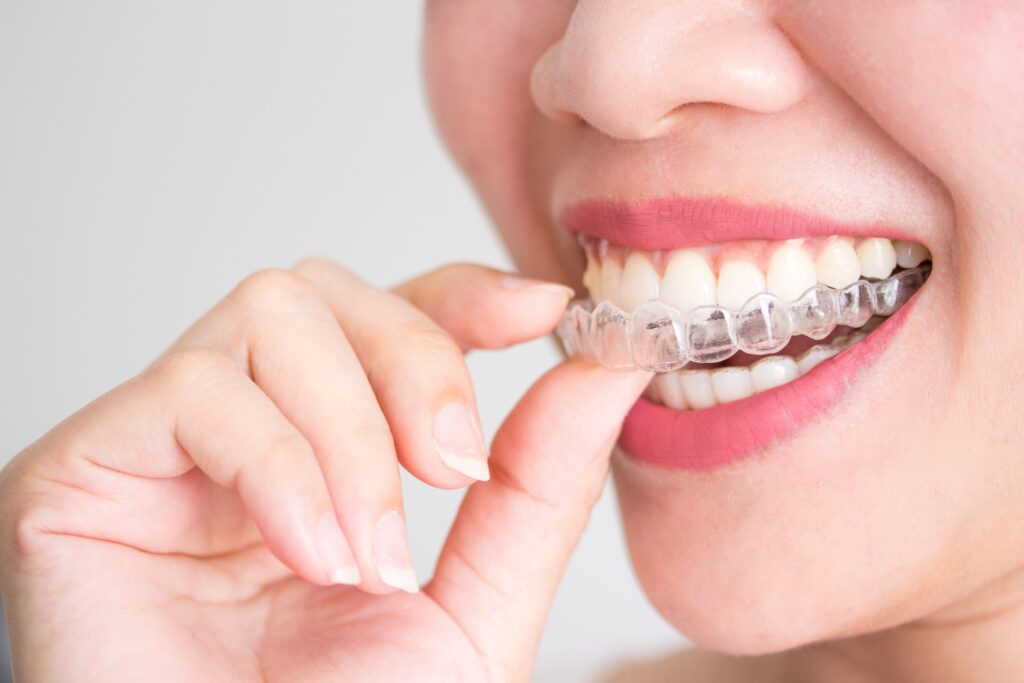
Invisalign is a popular alternative to traditional orthodontics because the clear trays are much more subtle than bulky metal brackets. They’re made to fit snuggly over your teeth to gently shift them to their ideal placements.
However, the plastic material isn’t as resilient as standard braces. If you suffer from bruxism, or chronic teeth grinding, you might wonder whether Invisalign is a viable option for you. Continue reading to learn whether this subconscious habit hinders this orthodontic treatment!
What is Bruxism?
This is a condition in which you inadvertently clench your teeth together for prolonged periods. Though it can happen during the day, it’s more common at night while you’re sleeping. The exact cause of your grinding depends on your unique circumstances, but it’s believed the following can be contributing factors:
- Higher-than-usual stress or anxiety.
- Heredity (it runs in the family)
- Sleep disorders, like sleep apnea or night terrors.
- Other health concerns like acid reflux or ADHD.
- Allergies.
- Certain prescription medications.
- Lifestyle choices like smoking cigarettes, drinking alcohol, using recreational drugs, or consuming copious amounts of caffeine.
How Does Bruxism Impact My Teeth?
Whether or not you’re aware that you’re doing it, placing added pressure on your teeth can negatively impact your oral health. For example, your teeth could be pushed out of alignment which often leads to uneven wear and tear that leaves them vulnerable to decay or injuries.
To make matters worse, this condition also puts undue stress on your TMJ (temporomandibular joints) that connect your jawbone to your skull. In time, you could develop a stiff or locked jaw, headaches, earaches, and discomfort when eating or speaking.
Does Bruxism Damage Invisalign?
Invisalign relies on clear plastic aligners that aren’t made to be incredibly durable. Every one to two weeks, your dentist provides a new set to wear to account for the ongoing movement of your teeth. These trays aren’t designed to be resilient enough to eat with them in your mouth, so many patients worry that their bruxism will ruin them.
Thankfully, in many cases, Invisalign can help alleviate the symptoms of your teeth grinding. It functions like a mouthguard and separates your upper and lower arches, even when clenching, to safeguard your smile. While you might wear your aligners down faster, they’re not meant to last forever anyway, so you can stay on track with your treatment timeline.
Although you might worry that your Invisalign will be harmed by bruxism, in many cases, your orthodontics help preserve your grin!
About the Author
Dr. Sean Bannan enjoys helping people of all ages build and maintain happy, healthy smiles. He earned his Doctor of Dental Surgery from the University of Michigan School of Dentistry and is committed to ongoing education to stay current with the latest technology and techniques. Today, he’s a member of the American Dental Association and several other prestigious organizations, so you can trust that you’re in good hands. He provides a full array of services conveniently under one roof, including Invisalign, to streamline your oral healthcare. If you want to upgrade your grin, you can request a consultation on the website or call (386) 516-4351.
